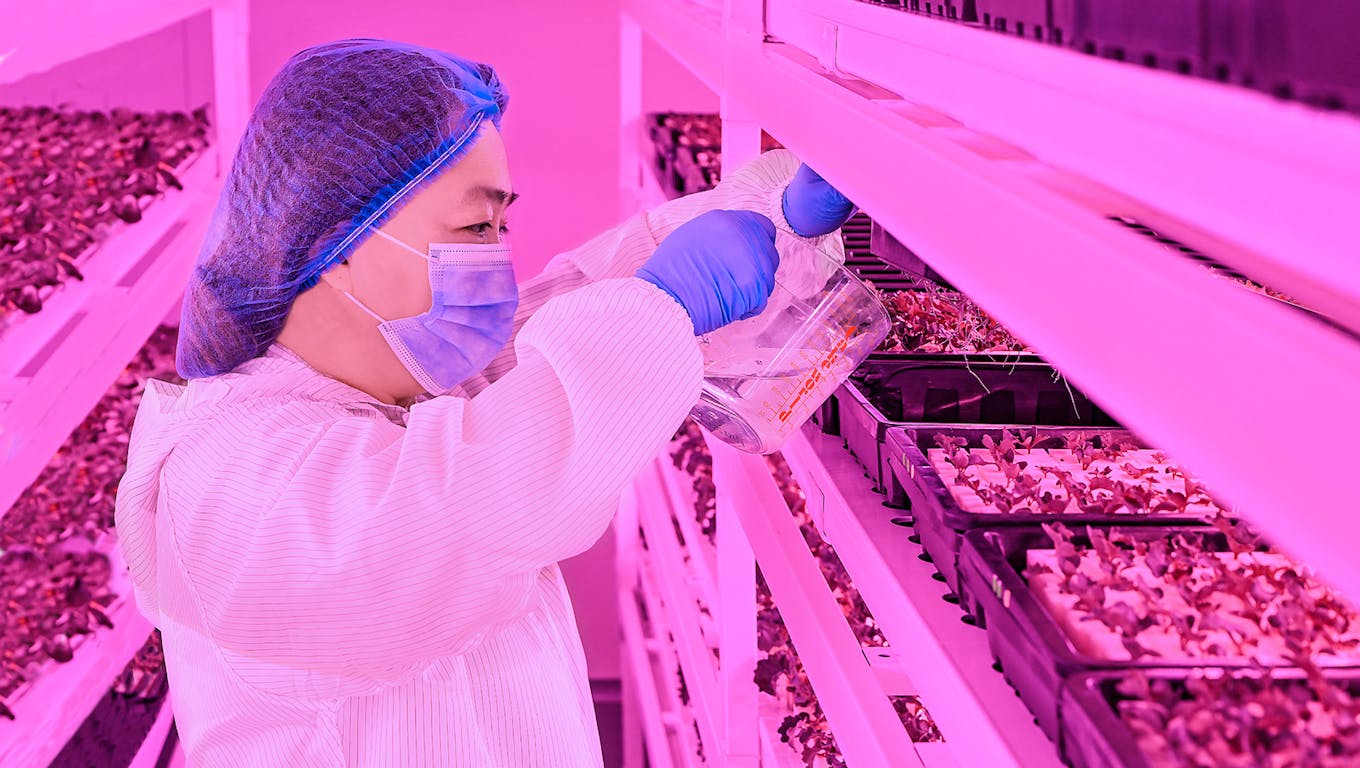As extreme weather events and natural disasters intensify due to climate change, there is increasing evidence that private enterprises must take climate risks into account or bear greater consequences down the line.
The impact of climate-induced extreme weather is costing businesses more each year, costing US$280 billion worldwide in 2022 according to a United Nations study, with deadly weather events having also increased by over 80 per cent in the last two decades.
The potential disruption that extreme weather poses on companies today puts the onus on businesses to factor in climate risks, noted Andy Pitman, director of the Australian Research Council (ARC) Centre of Excellence for Climate Extremes.
“Every enterprise or organisation should be assessing risk, be it cyber, pandemic, or climate-related risks. Climate is simply one of many risks that every enterprise or organisation has to manage [moving forward],” Pitman said.
By 2060, business disruptions exacerbated by climate change could cause up to US$24.7 trillion in global economic losses.
Asia is especially vulnerable to extreme weather led by climate change, with over 3,000 separate events stemming from the region over the 20-year period noted in the UN study. The United States, in comparison, saw almost 470 extreme weather events during the same period.
Threats such as typhoons, wildfires, floods, and droughts pose greater risks to all businesses, as they lead to supply chain disruptions and financial losses.
In the long run, supply chain disruptions negatively impact a company’s ability to source, manufacture, and deliver its products or services, and can ultimately affect a business’s bottom line.
Farm to table

Vegan entrepeneur Katherine Desbaillets Braha, chief brand officer and co-owner of SaladStop!, shared that the food chain aims to be carbon neutral by 2030. Image: SaladStop!
One industry at the mercy of climate-induced extreme weather is the food and beverage industry.
Katherine Desbaillets Braha is the chief brand officer and co-owner of SaladStop!, a Singapore-based restaurant chain that serves salads, grain bowls, wraps, and smoothies.
“Freshness is key for us as a food and beverage provider. All our produce is locally sourced and sent to us on the day itself,” Braha explained.
With a presence in seven countries across Asia, SaladStop! largely commits to a local procurement policy to not only empower farmers in their host countries but also lower their carbon footprint. While her company relies on fresh ingredients transported to its restaurants each day, usually from local farmers, weather can affect operations.
An average of 20 storms and typhoons hit the Philippines each year, leading to reduced agricultural yields, and destroyed crops. More recently, Super Typhoon Odette – one of the strongest recorded storms on Earth in 2021 – caused nearly US$1 billion in damage in southern and central Philippines.
In Thailand, typhoon-induced floods can have an impact on rice production in various regions, and lead to reduced crop output and delays in harvests.

In Singapore, SaladStop! partners with indoor farming company Sustenir Agriculture for local produce. Image: Singapore Food Agency
One typhoon in the Philippines and Indonesia four years ago stalled operations in those countries, underscoring the logistical hurdles and agricultural damage wrought by tropical storms in the region.
While other restaurant operators may have resorted to importing produce when faced with local supply chain issues, Braha noted that her company, instead, also seeks the help of local indoor farms to keep their commitment to lowering emissions.
This, Braha said, also enables SaladStop! to continue operations despite weather-related disruptions, which she noted will likely increase over time due to climate change
“Over the years we have adapted and built a much stronger ecosystem of ethical and reliable suppliers in these countries. This ensures we can adjust quickly and get fresh produce to our customers daily, no matter the circumstance,” shared Braha. Among their partners are organic greenhouse farm Kalye Luntian in the Philippines and indoor farming company Sustenir Agriculture in Singapore.
The latter is supported by the Singapore Food Agency through an innovation grant, as the agency champions its ‘30 by 30’ goal – to build the city-state’s agri-food industry’s capacity to sustainably produce 30 per cent of Singapore’s nutritional needs by 2030. This goal is also featured in the Singapore Green Plan 2030.
Beyond fresh vegetables, climate-induced extreme weather will continue affecting the output of grains such as rice, leading to scarcity and price increases, with a report from the United Nations Food and Agriculture Organisation finding that rice prices worldwide reached a 15-year high in 2023.
“
APAC countries, and by extension, businesses operating in these countries, are among the most vulnerable to hazard intensification from climate change. Therefore, it becomes even more crucial to take adaptation measures. Risk reduction through adaptation can help with insurability.
Wilfrid Goh, head of public sector solutions Asia, Swiss Re
Risk and opportunity
The insurance and reinsurance sectors are also affected by increasing climate risks.
Reinsurance is insurance for insurance companies. Reinsurance helps insurers to manage their risks by absorbing some of their losses.
Property reinsurance rates, for example, hit 20-year highs in 2023, revealed a Swiss Re report, highlighting the impact of nature and the need to future-proof value chains.
“Demand for [insurance] covers has grown as natural disasters continue to wreak property damage across the world,” said the study, noting that insurance covered less than half of the US$275 billion total in global economic losses that resulted from natural catastrophes in 2022.
The economic impact of climate change on the world’s interconnected supply chains has increased demand for insurance and reinsurance services, notes Wilfrid Goh, Swiss Re’s head of public sector solutions, Asia excluding China. “No company or sector is immune from the impacts of climate risk,” he said.
Swiss Re is one of the world’s leading providers of reinsurance, insurance, and other forms of insurance-based risk transfer.

Wilfrid Goh is the Head of Public Sector Solutions, Asia excluding China at leading reinsurer Swiss Re. Image: Swiss Re
“For us and the wider re/insurance industry, [however] climate change continues to be both a manageable risk and a growth opportunity. Natural catastrophe [insurance] and reinsurance demand is expected to grow strongly. Meanwhile, as countries seek to transition to net zero economies, opportunities are expected for renewable energy reinsurance and renewable energy infrastructure debt [financing].”
Swiss Re’s Changing climates: the heat is (still) on report underscored that fast-growing Asian economies like China, India, the Philippines, and Thailand are the most susceptible to climate shocks.
“APAC countries, and by extension, businesses operating in these countries, are among the most vulnerable to hazard intensification from climate change. Therefore, it becomes even more crucial to take adaptation measures. Risk reduction through adaptation can help with insurability,” added Goh.
Taking into account crop exposures from the last few years, Swiss Re estimates that the global protection gap – which is measured in premium equivalent terms and refers to the uninsured or unprotected portion of the resources needed to fully mitigate risk – currently stands at US$1.8 trillion, marking a 20 per cent increase compared to four years ago.
To assess and mitigate the impact of climate risks on the company, Swiss Re refers to an “ESG Risk Framework”, explains Goh, which helps the company with its environmental, social, and governance (ESG) practices and in preventing, mitigating, and managing risks through engagement, restrictions, and portfolio enhancements.
The firm also incorporates climate-related financial disclosures to help its investors and other stakeholders assess climate risks and opportunities, added Goh, noting that Swiss Re also engages with clients on identified sustainability issues to discuss remediation plans or gather input from external stakeholders to better understand clients’ risks.
Companies can maintain their competitiveness by viewing climate-related risks as opportunities to maintain relevance and grow, adds Pitman. “It need not be a cost to manage [climate] risk. It can provide strategies for an enterprise or organisation to out-compete others,” he said.
The role of insurance will increase in tandem with growing climate risks, Goh stresses. “As climate-related risks increase, so must our efforts in reducing these risks,” he noted. “Insurance helps to absorb economic losses by providing compensation to enable the replacement of good and continued service after a damaging event. This helps communities and ecosystems recover quickly, and covers the costs of necessary actions.”
Growing with purpose
SaladStop! and Swiss Re are both members of the National Volunteer and Philanthropy Centre’s (NVPC) Company of Good community, which supports businesses as they adopt corporate purpose and create impact in the areas of People, Society, Governance, Environment, and Economic.
Braha shared that her company joined the Company of Good community “to be surrounded by like-minded people and to get ideas on what else can be done to be more sustainable.”
SaladStop!, which has two net zero stores in Singapore, aims to be carbon neutral by 2030. It hopes to achieve this through utilising only zero-waste packaging – among them salad bowls made of biodegradable bagasse (sugarcane pulp) – composting food waste, avoiding ingredients that contain palm oil, and promoting consumer-facing incentive programmes like ‘bring your own’ (BYO) container discounts.
SaladStop! also allows customers to “offset” their meal and by supporting mangrove reforestation projects in Indonesia through donations.
With a core commitment to conscious consumption through its corporate mission of “bringing freshness back to the table”, the restaurant chain hopes to champion products that respect nature and have a controlled impact on the environment.
“We want people to realise that our food, our communities, and our environment are all connected,” said Braha, who is a vegan herself. “We believe that eating healthy is more than just being good to our bodies; it is also about being good to everything around us,” concluded the SaladStop! co-founder.
As for Swiss Re, Goh notes its corporate purpose continues to help the company create business value, all while offering care to vulnerable communities. “Swiss Re’s mission is to help make the world more resilient,” he said, highlighting the work of the company’s philanthropic arm, the Swiss Re Foundation.
“The Swiss Re Foundation helps strengthen resilience in targeted low-income communities and communities near Swiss Re locations,” he explained. “The Foundation offers its partners tailored grant financing, access to expertise, research and capacity building, as well as collaborative networks to create measurable, lasting impacts at scale.”
In addition to increasing value and lowering costs, a corporate purpose can help companies win favour with more customers, Pitman added. “A careful assessment of how a business can adopt a sustainable corporate purpose is good practice, as it can save considerable operating costs [down the line] and [effectively position] a business to customers.”
NVPC seeks to recognise businesses in Singapore at a national level under its newly launched Company of Good Recognition System.
Sign up here to become a Company of Good.















